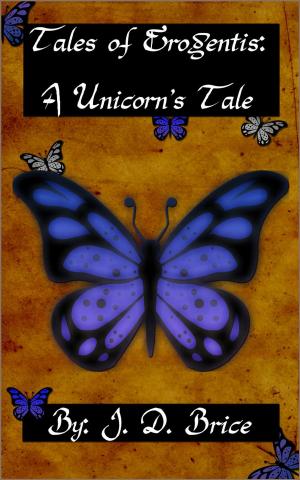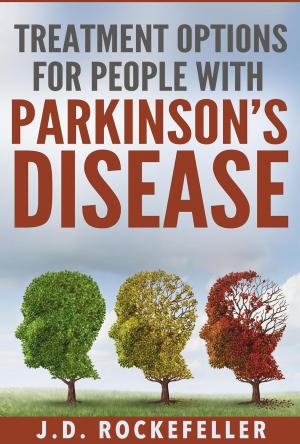Developing Healthy Emotions
Nonfiction, Health & Well Being, Psychology, Emotions, Self Help, Mental Health, Happiness| Author: | D J | ISBN: | 9781311219848 |
| Publisher: | D J | Publication: | December 9, 2013 |
| Imprint: | Smashwords Edition | Language: | English |
| Author: | D J |
| ISBN: | 9781311219848 |
| Publisher: | D J |
| Publication: | December 9, 2013 |
| Imprint: | Smashwords Edition |
| Language: | English |
Feelings are much like waves; we can't stop them from coming but we can choose which ones to surf. ~Jonatan Mårtensson
We can choose! And that's what this little booklet is all about... choosing to develop healthy emotions and maintain emotional balance? Can we do that? Yes definitely, if we work at it. Just as we can choose the waves to surf and reject those that may cause us harm, we can choose which emotions to nurture and which to reject. The operative word is 'choose.'
Lets be honest. Emotions drive our behaviour, our decisions, our feelings ... just about everything we do and are, including our thoughts. Until we understand the source of our emotions, and learn how to direct them to healthy outcomes we allow them to control us - often with distressing results. Our emotional state [our 'attitude'] is the most important determinant of how happy we are. Not material wealth and not even good health. Viktor Frankl wrote in 'Man's Search for Meaning' that our attitude is the last of human freedom. It can never be controlled by someone else. Read all about Nick Vujicic - a man who conquered unbelievable odds.
Controlling your emotions means using them to help you get along with people, solve problems and live a more happy and balanced life. It combines feelings with knowledge, emotion with intelligence.
Dr. Daniel Goleman wrote 'Emotional Intelligence' in 1995. It is a common belief that intelligence and emotions are two distinctly separate dimensions, with emotions considered a failing that lead to poor decisions and actions. Not true. In his book, Daniel Goleman suggests that intelligence can be applied to successfully use emotions to create a fulfilling and balanced life. That means we can learn how to dominate our emotions.
An emotional person is defined as: "one easily influenced and driven by emotion; one who easily and openly displays emotion; one with a tendency to depend on or place too much value on emotion; one whose conduct is ruled by emotion rather than reason."
An ntelligent person, on the other hand, uses a set of cognitive abilities to acquire knowledge, and to learn and solve problems". That's clear enough. But what kind of problems are we referring to? If they're rational and objective that shouldn't be too difficult. But what if the problem arises from emotions [feelings] that have been negatively aroused?
When we have control over our emotions we are able to modulate our emotions in any given situation to meet a desired objective that is acceptable to everyone involved. This essentially means being able to 'identify' the dominant feelings you and those with you are experiencing, then use this knowledge to generate an emotion, and then reason with this emotion. It means using your emotions to help you solve problems and live a more effective and happier life. Emotional intelligence without intellectual intelligence, or intelligence without emotional intelligence, is incomplete.
Learning how to control our emotions by choosing which ones to hold on to and which ones to reject is not about how to be gracious and refined, or about how to win friends and influence people, though it certainly does help in both. It does not replace job skills, initiative or knowledge; neither is it vital in all facets of day to day living? It is however crucial in effective leadership and career growth, and in many spheres of our lives that involve interacting, and creating healthy relations with others - our spouse, children, friends, relatives and whoever else may feature in our lives. It is alsi immensely important for our happiness and well-being.
This book explores in brief the dynamics of emotions, types of intelligences and practical approaches to controlling and developing healthy emotions and emotional balance. It is essentially a guide book, not esoteric psychobabble, touching on an easy-to-understand principle: that you have more control over your emotions that you think.
Feelings are much like waves; we can't stop them from coming but we can choose which ones to surf. ~Jonatan Mårtensson
We can choose! And that's what this little booklet is all about... choosing to develop healthy emotions and maintain emotional balance? Can we do that? Yes definitely, if we work at it. Just as we can choose the waves to surf and reject those that may cause us harm, we can choose which emotions to nurture and which to reject. The operative word is 'choose.'
Lets be honest. Emotions drive our behaviour, our decisions, our feelings ... just about everything we do and are, including our thoughts. Until we understand the source of our emotions, and learn how to direct them to healthy outcomes we allow them to control us - often with distressing results. Our emotional state [our 'attitude'] is the most important determinant of how happy we are. Not material wealth and not even good health. Viktor Frankl wrote in 'Man's Search for Meaning' that our attitude is the last of human freedom. It can never be controlled by someone else. Read all about Nick Vujicic - a man who conquered unbelievable odds.
Controlling your emotions means using them to help you get along with people, solve problems and live a more happy and balanced life. It combines feelings with knowledge, emotion with intelligence.
Dr. Daniel Goleman wrote 'Emotional Intelligence' in 1995. It is a common belief that intelligence and emotions are two distinctly separate dimensions, with emotions considered a failing that lead to poor decisions and actions. Not true. In his book, Daniel Goleman suggests that intelligence can be applied to successfully use emotions to create a fulfilling and balanced life. That means we can learn how to dominate our emotions.
An emotional person is defined as: "one easily influenced and driven by emotion; one who easily and openly displays emotion; one with a tendency to depend on or place too much value on emotion; one whose conduct is ruled by emotion rather than reason."
An ntelligent person, on the other hand, uses a set of cognitive abilities to acquire knowledge, and to learn and solve problems". That's clear enough. But what kind of problems are we referring to? If they're rational and objective that shouldn't be too difficult. But what if the problem arises from emotions [feelings] that have been negatively aroused?
When we have control over our emotions we are able to modulate our emotions in any given situation to meet a desired objective that is acceptable to everyone involved. This essentially means being able to 'identify' the dominant feelings you and those with you are experiencing, then use this knowledge to generate an emotion, and then reason with this emotion. It means using your emotions to help you solve problems and live a more effective and happier life. Emotional intelligence without intellectual intelligence, or intelligence without emotional intelligence, is incomplete.
Learning how to control our emotions by choosing which ones to hold on to and which ones to reject is not about how to be gracious and refined, or about how to win friends and influence people, though it certainly does help in both. It does not replace job skills, initiative or knowledge; neither is it vital in all facets of day to day living? It is however crucial in effective leadership and career growth, and in many spheres of our lives that involve interacting, and creating healthy relations with others - our spouse, children, friends, relatives and whoever else may feature in our lives. It is alsi immensely important for our happiness and well-being.
This book explores in brief the dynamics of emotions, types of intelligences and practical approaches to controlling and developing healthy emotions and emotional balance. It is essentially a guide book, not esoteric psychobabble, touching on an easy-to-understand principle: that you have more control over your emotions that you think.















